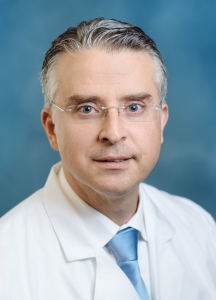By ROGER MONTENEGRO, MD

There has been a dramatic increase in acute hepatitis A cases in recent years in Florida.
In 2017, there were 276 cases, which then nearly doubled again in 2018 to 548 cases. In 2019, it reached its height for people infected, with 1,811 being discovered. This year the most affected counties are Pasco, with 347 cases; Pinellas, with 302 cases; and Hillsborough, with 108 cases. Polk County reported 21 cases from January 1, 2019 to July 6, 2019.
Hepatitis A infection is caused by the hepatitis A virus. It is usually a self-limited illness and does not become chronic like other known hepatitis viruses B and C. Although it is self limited, liver failure can occur in less than 1% of cases. It is estimated that globally there are approximately 1.4 million cases per year. Hepatitis A can occur sporadically, for example, when caught by travelers returning from other countries, or in an epidemic form, such as when an infected person contaminates food or water.
Hepatitis A virus is spread to another person when the tiny germ in feces from an infected person gets into another person’s mouth via food, water or close bodily contact. Often, the person spreading the virus has not yet developed the sickness and does not know they are contagious. Young children often have a very mild illness and may be the source of new infections.
In the United States, the number of cases has declined dramatically since the availability of a safe and effective vaccination in 1996. The vaccine is routinely recommended for all infants and any adult who is at high risk of becoming infected or at a high risk for serious illness, such as those with pre-existing liver disease.
Typical symptoms of acute hepatitis A infection include an abrupt onset of nausea, vomiting, lack of appetite, fever, malaise and abdominal pain. These are followed after a few days by darkening of the urine, pale stools, jaundice (yellowing of the skin), scleral icterus (yellow eyes) and itchy skin.
Diagnosis is based upon the patient’s signs and symptoms, as well as blood testing (elevation of liver enzymes and detection of hepatitis A IgM antibody).
There is no cure for hepatitis A but it is a self-limited disease and most people recover with supportive treatment. The amount of time required to recover varies from person to person, from several weeks to several months. It is recommended that a person with hepatitis A should not return to work or school until fever has resolved and appetite has returned. This is usually one week after the appearance of yellow skin and eyes. Once fully recovered, the patient becomes immune to hepatitis A for life.

Hepatitis A prevention is the main and only way to battle this disease. There are several ways to prevent the spread of hepatitis A virus.
- Hand washing with plain or antimicrobial soap is one of the most effective strategies for reducing transmission. Hand washing with soap and water is the preferred method rather than alcohol-based hand rubs.
- Taking precautions when preparing or handling food can also reduce the risk of transmission. Several precautions are recommended, such as washing raw fruit and vegetables thoroughly before eating.
- It is also very important when traveling abroad to areas where hepatitis A is common to take precautions when drinking, eating or preparing foods.
- Vaccination is the best way to prevent hepatitis A infection. Hepatitis A vaccines are available and protect nearly 100% of people who receive the recommended two doses for a lifetime. The vaccine is a two-dose series, with the second shot given six months after the first shot.
Given the recent increase in cases, the Florida Department of Health is actively working to vaccinate those most at risk for hepatitis A infection. If you or a loved one think they have been exposed to someone with hepatitis A, talk to your healthcare provider or the Florida Department of Health for questions and further care.
About the Author
Roger Montenegro, MD, is a Gastroenterologist with Lakeland Regional Health, specializing in treating disorders of the esophagus, stomach, intestines, liver, rectum, gall bladder and pancreas. To make an appointment with Dr. Montenegro, call 863.284.5000.
